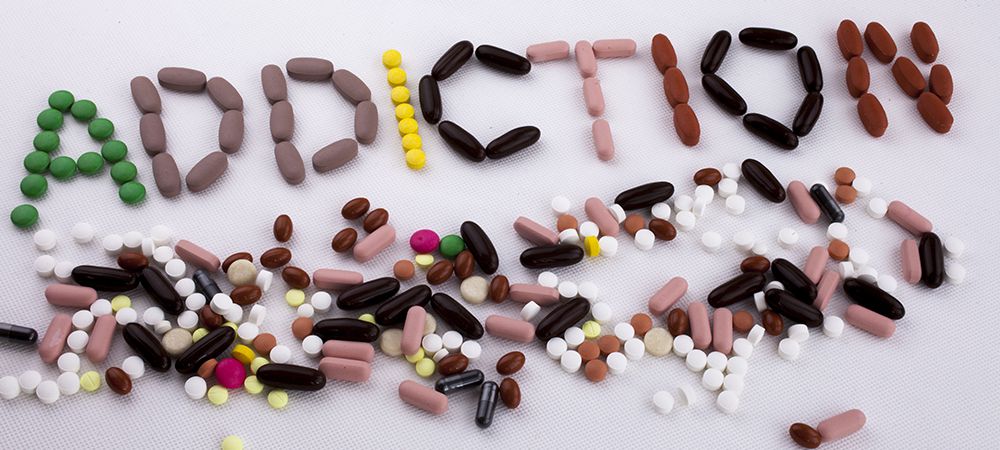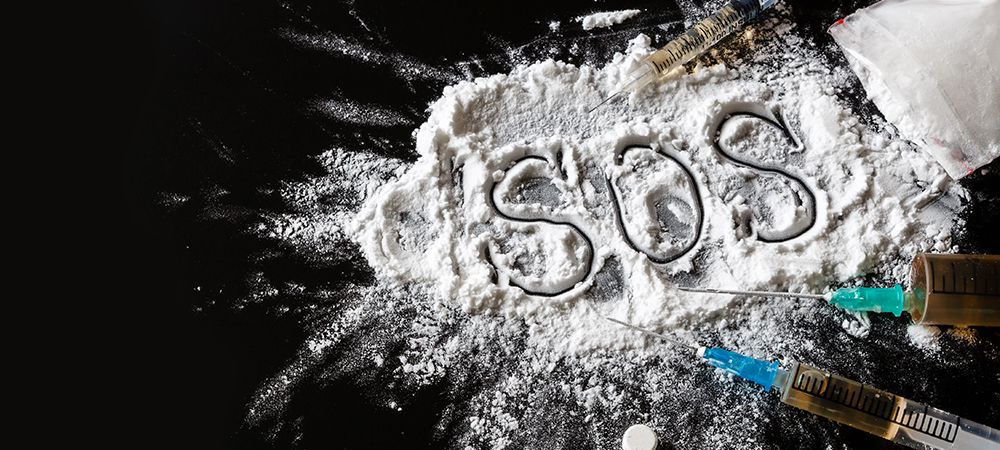How to Know if a Loved One is Addicted to Amphetamine?
It’s not easy to know if your loved one is addicted to Amphetamine. There are several factors responsible for this. The first is you have a blind spot for your loved one. Most times, you end up believing what you want about them. This is especially true when you can’t put a finger on any drastic changes.
Another factor to consider is they know you very well. Hence, it’ll be easier for them to keep their Amphetamine use hidden from you. However, one thing common to drug usage is that the user can’t hide it forever. Even if they hide the substance from you, there are symptoms of Amphetamine abuse and dependence that can paint a credible picture.
Beyond this, Amphetamine is dangerous to the health. If your loved one does not stop the abuse, it can lead to death. Hence, it should be a real concern for you if your loved one is dealing with Amphetamine abuse.
Not to worry, we’ll highlight all the indicators you need to know if a loved one is addicted to Amphetamine. This way, you can help them get the help they need.
But first, let’s take a closer look at the disease that is Amphetamine addiction.
What is Amphetamine and its Addiction?
Amphetamine is a central nervous system stimulant. The drug is known to alter the mood of the user, and in the long run, is highly addictive. However, unlike most other substances, amphetamine is synthetic.
Amphetamine abuse has become a major challenge in Canada. Now, more than ever, it’s important to be able to tell if your loved one is addicted to amphetamine.
After taking amphetamine, the user experiences an increase in brain activity. They may also feel an incredible surge in energy. Other symptoms that follow immediately after each amphetamine use are; focus, euphoria, and confidence. These are all common symptoms and reasons users continue to indulge in Amphetamine abuse. It is this continuous use that opens your loved one to the risk of addiction.
Amphetamine was first created in Germany during the late 1800s. However, it wasn’t until the 1930s that its characteristics as a stimulant came to fore. This discovery came after scientists started prescribing it for nasal congestion.
Soon, the usage of amphetamine spun to other things. Among others, it was useful in dealing with weight loss, hangovers from alcohol and depression symptoms.
Types of Amphetamine
Amphetamine, as a drug component, is a stimulant. It is made available in combination with different other substances. This accounts for the different types of amphetamines available in Toronto. The shortlist includes Adderall, Dexedrine, Vyvanse, and generic ADHD medications.
Another type of amphetamine is methamphetamine. This is similar in structure to basic amphetamine but has a stronger effect on the body. Due to its strong effects on the user, this substance is declared illicit. Some of its effects include intense euphoria — a highly addictive state that can be very dangerous.
There is another type of amphetamine drug referred to as ecstasy. It is a drug that can alter the mind of the user. If any medical situation will warrant its use, it has to be under the strict supervision of a doctor.
Amphetamine abuse requires vigilance
If you suspect amphetamine abuse in your loved one, you should act swiftly. Amphetamine addiction comes with a host of negative effects that can drastically change a life. And as customary of most addicts, admission of substance dependence is almost impossible.
Most addicts always tell themselves — and others — they are not addicted. They’ll swear to you they can get off the substance whenever they want. This is not true. While amphetamines are mostly administered to treat ADHD, you can get dependent on these small, dark tablets almost subconsciously. Amphetamines are amongst the most addictive substances in the world.
It’s for this reason you can’t get a refill of the substance over the counter. You’ll need to get a new prescription from your doctor. The need for control with this substance is vital. Continuous use can warp the brain, resulting in lasting effects.
Common Amphetamine abuse scenarios
A common amphetamine abuse scenario is mixing it with other substances. This can be dangerous, especially if your loved one is already addicted. For the average person, it’s hard to tell which drug will react badly with amphetamine. A wrong combination can open up your loved one to the risk of nerve-damaging toxins.
The same sentiment goes for mixing amphetamines and alcohol. This also applies to using Xanax and Adderall. These substances are both depressants. Hence, they normally result, individually, in a slowdown of the central nervous system. If your loved one mixes them, it can result in an overdose.
Now, are we saying amphetamine isn’t any good for your loved one? No. However, if you know your loved one has a medical condition that warrants them to use Amphetamines, you need to be vigilant.
There is a very thin line between sticking to the recommended prescription/usage of this substance and addiction. Amphetamine is crucial to treating medical issues like ADHD. But don’t just leave your loved ones to themselves. If it gets too late before you notice the indicators of amphetamine abuse, things can get pretty bad.
Related Article: Amphetamine Addiction: What Are The Causes?
The Negative Impacts of Amphetamine Addiction
The ease with which users can pop Amphetamines into their mouth should leave you worried about your loved one. The side effects and health complications resulting from amphetamine abuse and addiction are extensive.
In this section, we’ll explore all of them. Ample knowledge of them will motivate you to pay attention to whether your loved one is addicted to Amphetamines.
Risk of heart problems or death
If you take Amphetamines incorrectly, you may be exposing yourself to a heart attack. Worst case scenario, this can lead to death. Wrong use can cause blood pressure to increase. This can be followed by an increase in heart rate, then stroke, and a heart attack.
Slowed growth in children
Amphetamine is a depressant. The presence of it in the body of a child can lead to a reduction in growth rate. In the case your loved one, a child, has to use the drug, make sure the doctor duly measures their height and weight. If during the treatment, there is a drop in these variables, there may be a need to stop Amphetamine treatments.
However, it goes without telling that once the child has developed dependence, stopping will be very difficult. A stoppage can see the child suffer painful withdrawal symptoms.
Judgment impediment
Addiction to amphetamine ends up clouding the judgment of your loved one. They may make terrible mistakes they wouldn’t make normally. Hence, during the period of amphetamine addiction and treatment for your loved one, limit the precision-demanding activities they engage in. They shouldn’t drive or use heavy machinery.
Insomnia
This is a common effect of addiction to amphetamines and their related substances. It becomes very difficult to sleep, and if this continues for a long time, it can lead to a breakdown. Before breaking down, you may start to function below optimum efficiency
Loss of Muscle control
Amphetamine addiction can result in you losing the functioning and control of your muscles. You may also experience muscle spasms.
Muscle spasms are a scenario where your muscles contract without your control. They are quick, sudden, and most often very painful. This sudden surge of pain can put the user at risk of injury.
Mental Health Problems
Addiction to any substance can make you a shadow of yourself. You’ll most likely lose your mental wellness as well as your normal thought process. With Amphetamine abuse, there’s also the possibility of bipolar illnesses.
A regular Amphetamine user will start to get aggressive for no reason and act hostile on flimsy grounds. This is one of the tells to know if your loved one is addicted to amphetamine.
What causes Amphetamine Addiction?
The factors resulting in amphetamine abuse differ from person to person. For some, it is ADHD, for others it is anxiety. The primary cause of amphetamine addiction is when you use it, uncontrolled, repeatedly. Your body begins to build a tolerance to it as you depend on it. This causes you to abuse it more.
More often than not, amphetamine dependence only develops when you use it outside of the normal prescription. When you use more than prescribed, addiction can. The same happens when you use it without a prescription.
On rare occasions, even when you adhere to prescriptions, you can still end up with a use disorder. Amphetamines have powerful addictive effects. Therefore, you and your loved ones need to exercise extreme care with its usage.
The people most susceptible to falling victim to amphetamine are:
- Those with easy access to the substance
- Those with depression, anxiety disorders, bipolar disorder, and schizophrenia
- Those with stressful lifestyles can also fall victim.
Watching out for the signs that a loved one is addicted to amphetamine becomes even more important if any of these is the case.
How to Know if a Loved One is Addicted to Amphetamine
With deliberate observation, you can tell when your loved one is addicted to amphetamine. The symptoms are easily noticeable, even to outsiders.
Most times, the consumption of amphetamine is oral. It is mainly in tablet form. However, to achieve a faster and higher level, many users snort or inject the substance. As a result of these different usage methods, several behaviours and cues serve as warning signs of amphetamine abuse. Some of these are:
- Snorting signs: If your loved one snorts amphetamine, then you can look out for some common tools. Some of them are straws, mirrors, and tightly-rolled cash bills. Some other times, users may get a bloody nose. Hence, if you’ve ever had suspicions about your loved one abusing Amphetamines, a bloody nose makes it more possible.
- Signs of injection: Most addicts hide the injection signs in their long-sleeved clothes. Hence, it may not be easy to detect. If you can get a good view of the inside of their elbows, injection sites are an indication your loved one may be abusing amphetamines.
- Signs of smokers: Those who smoke amphetamines mainly use a glass pipe. There are other cases when the user works with a metal spoon. For such a spoon, you’ll probably find burn marks on it. This is another indicator your loved one may be indulging in Amphetamine abuse.
Physical Signs of Amphetamine abuse to look out for
Amphetamine is so powerful to the extent that it can drastically influence the user’s body and mind. Some of the visible signs you’ll notice include:
Changes in energy level
There is always a burst of energy in the moments immediately after using amphetamine. Though the different modes of usage afford varying times for the effects to kick in. The important part is that once the effect wears off, your loved one will seem highly fatigued and lethargic.
Increase in the heart rate of the user
Many of the processes controlled by the nervous system speed up with the introduction of amphetamine to the body. Mostly, you’ll see the effects in the breathing and heart rate of the user.
Insomnia
Thanks to the heightened brain activity, it becomes nearly impossible for the body and mind to be at peace. Hence, insomnia crawls in.
Withdrawal symptoms of Amphetamine
Withdrawal symptoms are another way to tell if a loved one is addicted to Amphetamine. When a loved one is addicted to amphetamine, it can be hard to stop. Mostly, this isn’t due to the absence of a willingness to stop.
It’s due to painful withdrawal symptoms they have when they aren’t using the substance. The common symptoms include:
- Fatigue and heavy sleep
- A voraciously increased appetite
- Sudden twitches, jerks, and uncontrolled movements of the body
- Reaction rate slows down
- Severe aches and body pains
- Irritation
- Depression
- Agitation
All these may not happen to your loved ones at once, upon withdrawal. However, when any of them happen, the only cure they can immediately think of is to go back to the substance.
This is why the best place to begin withdrawal – and recovery treatment – is with a trained specialist. Seeking professional help is the first step towards recovery.
The Long-term effects of Amphetamine addiction
One of the most difficult things with amphetamine is to stop after first use. It is highly addictive and can lead to several chronic diseases.
Physical long-term effects of using amphetamine include the following;
- Tooth decay and loss
- Several diseases attack the immune system
- Numerous kidney complications
- Lung damages
- Suffering cardiac issues like stroke and heart attack
- Slurred speech
- Convulsion, extreme shakiness, and tremors.
- There is an increased risk of contracting diseases via needles
- Vertigo
- Ulcer development
- Chronic vitamin deficiency
- User experiences very high temperatures
- Inability to enjoy other activities
The psychology aspects of the problem include;
- A loss of cognitive functions and abilities
- Inability to concentrate
- Extreme paranoia
- Depressive disorder is also a common scenario
- Psychosis
- Behavioural disorders.
As regards amphetamine addiction, you don’t have to witness all these to be convinced that your loved one is suffering from amphetamine addiction. A few of these should put you on notice.
However, you need the expertise to approach a loved one to discuss amphetamine abuse. As said earlier in this guide, addicts exhibit denial of their situation. Hence, it may be difficult to talk about getting help, the same way it will be difficult to stop.
How to Help A Loved One with Amphetamine Addiction?
There is one thing to do when you notice that your loved one suffers from amphetamine addiction. They need to get professional help. You can’t help them by keeping quiet. Neither can you help them by agreeing they aren’t addicted.
There is so much that will be required of you if your loved one is to get back to normalcy. The very first of these is to talk. How you approach a loved one to discuss amphetamine abuse is critical.
Talking: How to talk to an amphetamine addict
Insecurity and shame are the two major reasons why every addict exhibits the denial that comes when they are confronted with statements regarding their addictions.
They all claim they aren’t addicts, which will be a good thing to believe. Even when they say that they can stop the substance whenever they feel like it, you should help them understand they can’t.
When addicts try to withdraw from amphetamine, they experience the symptoms above. The presence of withdrawal symptoms is further confirmation your loved one is addicted to amphetamine. When you want to talk to them about it, here is how you should go about it.
Don’t judge
This is a fundamental fact you need to understand. You are not engaging them in a conversation to judge them. If you do this, that’s the end. They’ll recoil and do their best to avoid you. You need to let them know you understand why they are in that situation in the first place. Be as calm as you can.
Help them understand the problem
In the most subtle of ways, you need to help them see what they are doing wrong and how it’s affecting them. It’s when you can convince them about the problem and its effects that they will be motivated to seek help.
Make sure to have a solution already
One major reason why many addicts don’t seek help is because of the drastic transition it brings to their lives. For chronic addicts, in-house treatments that leverage therapy and medications are the way to go. However, this will require that they move out of their primary environment. This can be scary. Hence, you must have come up with a plan of how you can help them navigate and mitigate the effects of addiction recovery.
Letting them know you are ready to support them in whatever way required is a big boost. This will go a long way in helping them survive the arduous journey to recovery that lies ahead.
Get them to a specialist
Specialists come at varying prices, but they all have one goal, helping your loved one recover. You should ensure you do everything possible to get them to consult with a specialist. When treatment finally starts, you should make sure they attend their sessions (if they signed up for outpatient treatment).
Support
Support is incredibly valuable. Either they are your friends or your family member, being there for them in times like this can change the trajectory of their addiction recovery process.
Gather positive friends, make their environment better by removing triggers, and make sure they don’t have to worry about money during recovery. As much as you can, reduce their stressors so they can focus on amphetamine addiction treatment.
Related Article: Signs Of Amphetamine Addiction
Final Take
If your loved one is addicted to amphetamine, you have a lot of work to do. From talking to them to making sure they see a specialist and focus on their addiction recovery programs.
There will be a need to buy medications, amongst other bills. Beyond financial support, moral support is also critical.
All of this can be too much for one person to bear. Thankfully, 1000 Islands Rehab Centre is here to help. Whether you need help talking to your loved one or deciding on a treatment plan, as a top addiction rehab in Toronto we’re your reliable partner. Contact us today to discuss an amphetamine rehab plan for your loved one!




